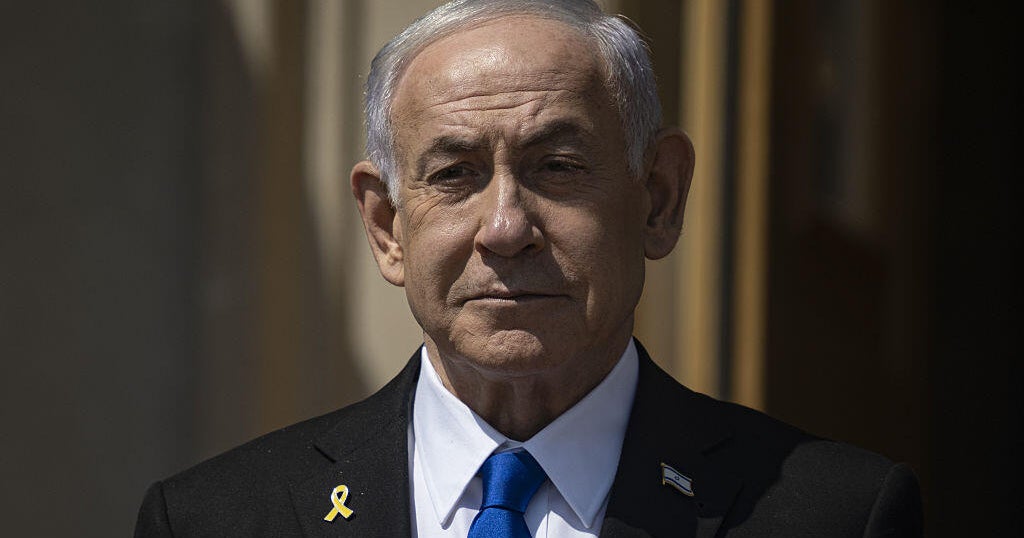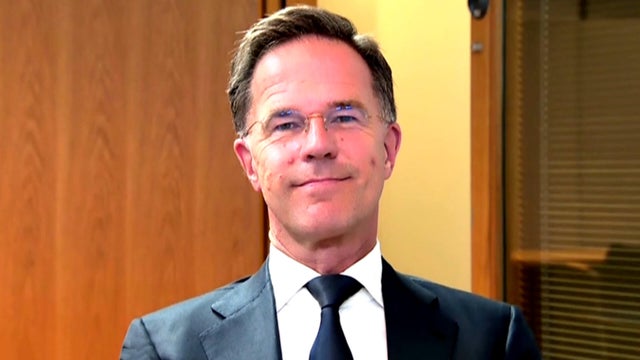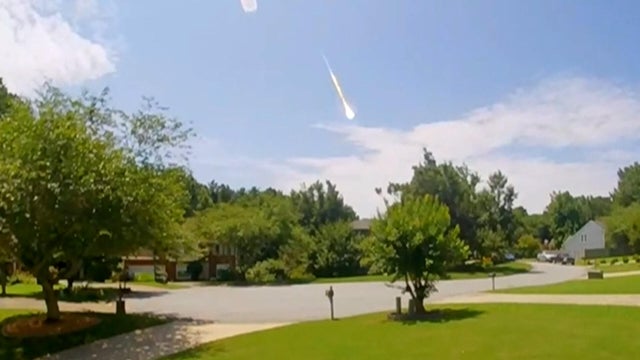

No response returned

Israeli Prime Minister Benjamin Netanyahu on Sunday defended a planned military offensive into , saying Israel "has no choice but to finish the job and complete the defeat of Hamas."
Speaking to foreign media in Jerusalem, Netanyahu asserted that Israel's goal was not to occupy Gaza, but to "free Gaza."
The Israeli leader said there is a "fairly short timetable" in mind for the next steps in Gaza.
The goals in Gaza, he said, include demilitarizing the enclave, maintaining the Israeli military's "overriding security control" and putting a non-Israeli civilian administration in charge.
The news conference came two days after Israel's Security Cabinet approved a plan for the Israeli military to take over Gaza City. The move sparked , and fears that the plan would the Gaza Strip's humanitarian problems and put the remaining living hostages held by Hamas since Oct. 7, 2023, in further danger.
"We will win the war, with or without the support of others," Netanyahu said.
Netanyahu's address came just before the United Nations Security Council holds an emergency meeting on Israel's plan to take control of Gaza City.
The prime minister said the plan approved by his Security Cabinet instructs the Israel Defense Forces to dismantle the last two remaining Hamas strongholds in Gaza City and the central camps, while Palestinians are funneled into "safe zones" with food and medical care.
"This is the best way to end the war and the best way to end it speedily," he said.
Netanyahu also said he had directed Israel's military in recent days to "bring in more foreign journalists" — which could be a striking development as their access to Gaza has been limited.
He said he has not yet spoken to President Trump about the plan, but intends to "very soon." U.S. special envoy Steve Witkoff is meeting with the Qatari prime minister in Spain this weekend, with the main aim being a discussion of making "workable" a new joint Egyptian-Qatari proposal on the return of the hostages held by Hamas in Gaza, .
Two Arab officials told the Associated Press that the new ceasefire framework would include the release of all hostages — dead and living — all at once in return for the war's end and the withdrawal of Israeli forces from Gaza.
The United States defended Israel, saying it has the right to decide what's best for its security. It called the allegations of genocide in Gaza false.
The U.S. has veto power at the council and can block proposed actions there.
Other council members and U.N. officials expressed alarm. China called the "collective punishment" of people in Gaza unacceptable. Russia warned against a "reckless intensification of hostilities."
"This is no longer a looming hunger crisis; this is starvation," said Ramesh Rajasingham with the U.N. humanitarian office. "Humanitarian conditions are beyond horrific. We have frankly run out of words to describe it."
At least 26 Palestinians were killed while seeking aid in the Gaza Strip in the last day, hospitals and witnesses told the Associated Press.
Hospital officials said they received bodies from areas where Palestinians were seeking aid — either along food convoy routes or near privately run aid distribution points across Gaza.
The dead include 10 who were killed while waiting for aid trucks close to the newly built Morag corridor, which separates the southern cities of Rafah and Khan Younis, said Nasser hospital.
A further six people were killed while waiting for aid in northern Gaza near the Zikim crossing, according to the Hamas-run Gaza Health Ministry and the Shifa hospital in Gaza City, which received the casualties.
Six other aid seekers were killed while trying to reach sites operated by the Gaza Humanitarian Foundation in Khan Younis and Rafah, Nasser hospital said.
Responding to Associated Press inquiries, the GHF media office said: "There were no incidents at or near our sites today and these incidents appear to be linked to crowds trying to loot aid convoy."
Israel's military also said there were no incidents involving Israeli troops near central Gaza aid sites.
During his press conference, Netanyahu blamed Hamas for its role in the ongoing humanitarian crisis, including civilian deaths, destruction and shortages of aid.
"Hamas still has thousands of armed terrorists in Gaza," he asserted, adding that Palestinians are "begging" the world to be freed from them.
The prime minister, who has asserted that there is "no starvation in Gaza," did acknowledge hunger there, saying, "there was a problem with deprivation, no question about it." Israel wants to increase the number of aid distribution sites, he said, but gave no details.





